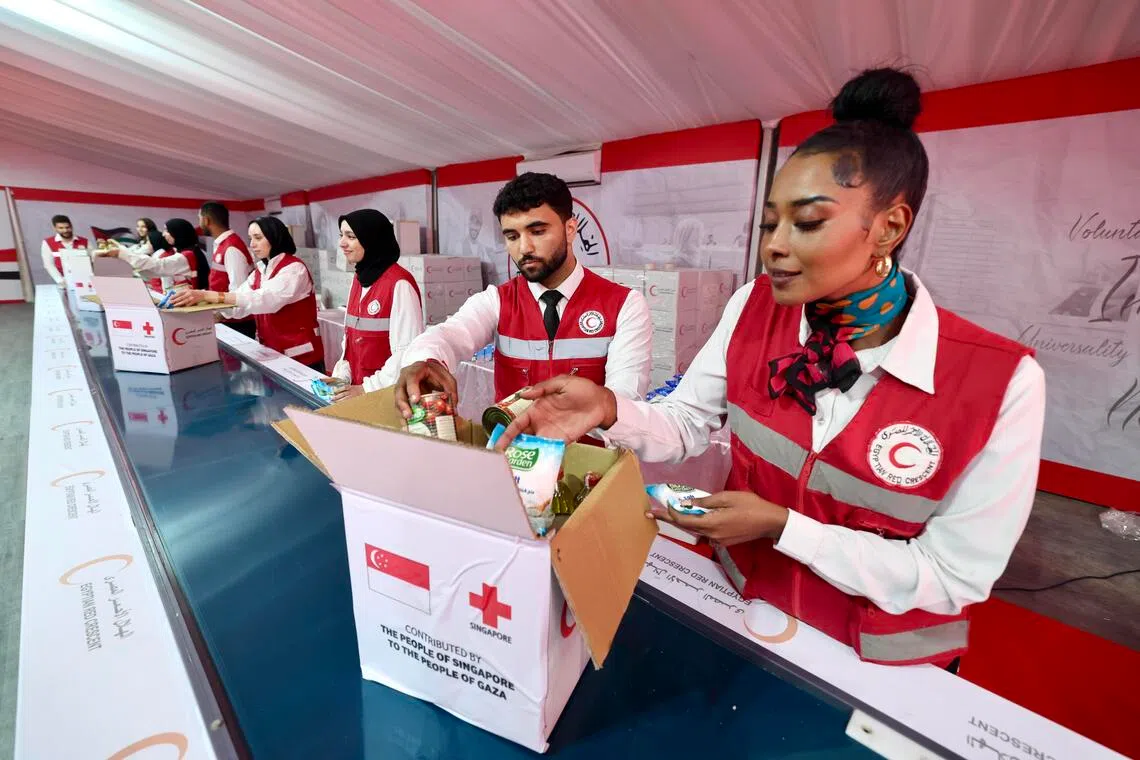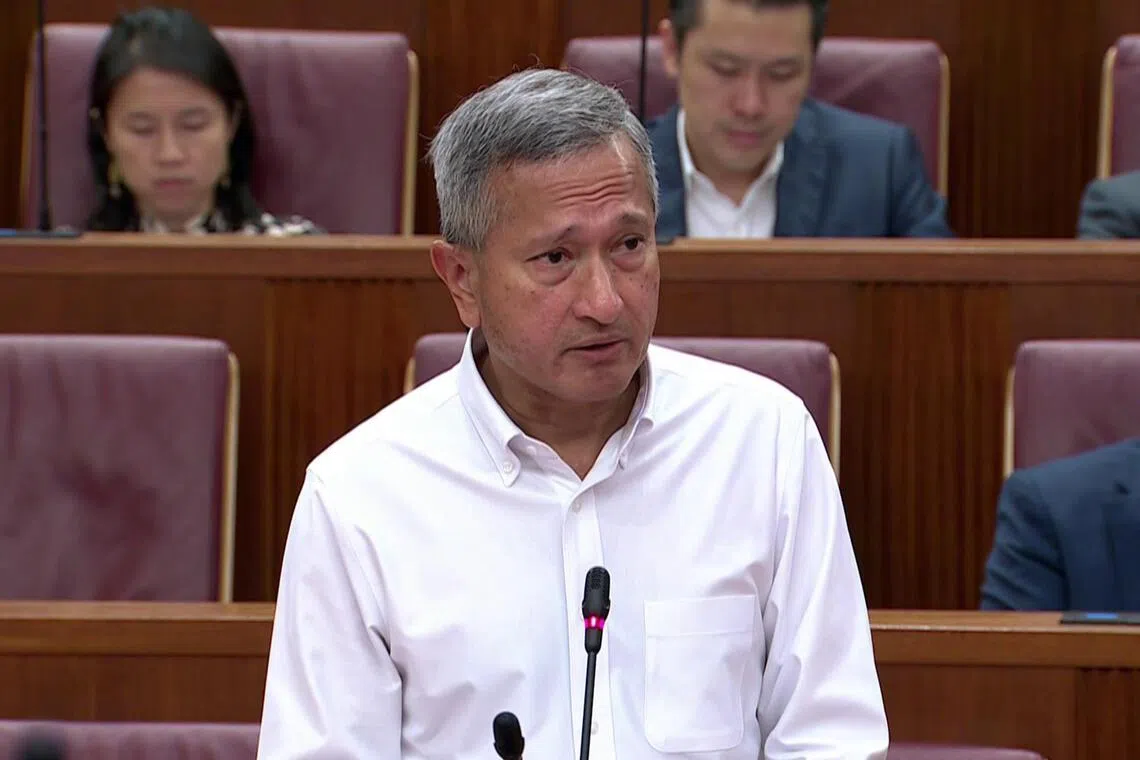S’pore to increase humanitarian aid, engagement with Palestinian Authority after peace plan
Sign up now: Get ST's newsletters delivered to your inbox

Egyptian Red Crescent volunteers in Cairo packing aid from the Singapore Red Cross to deliver to Palestinians in September.
PHOTO: LIANHE ZAOBAO
- Singapore will increase humanitarian aid to Gaza, working with regional partners and expecting Israel to facilitate overland access.
- Singapore will enhance engagement with the Palestinian Authority through capacity building and technical assistance programmes.
- Singapore supports a two-state solution, maintaining a consistent, constructive approach, but is not seeking a Board of Peace seat.
AI generated
SINGAPORE – With the first phase of a peace plan in Gaza in motion, Singapore will look to do more in delivering humanitarian assistance and engaging the Palestinian Authority as it prepares for eventual governance of the city, said Foreign Minister Vivian Balakrishnan.
He was responding to questions from MPs in Parliament on Oct 15, after Israel and Hamas signed off on phase one of US President Donald Trump’s 20-point Gaza peace plan.
Dr Balakrishnan said the opening of overland routes into Gaza will be crucial for humanitarian assistance to be delivered at the scale required.
“We will certainly look forward to doing more with our partners in the region, and I would add, we also expect the Israelis to do their part to facilitate the delivery of humanitarian assistance overland through the crossings into Gaza,” he added.
In the past two years, Singapore has been working with the Egyptian Red Crescent a few Egyptian hospitals
Under the peace plan, Gaza will initially be governed by a temporary transitional committee of Palestinian technocrats, supervised by a “Board of Peace” that will be headed by Mr Trump.
Dr Balakrishnan said it is premature to discuss what Singapore will do with the transitional authority.
In the immediate and short term, the Republic wants to do more with the Palestinian Authority, he added.
“We’ve already been working with them for years – capacity-building programmes, technical assistance, more recently, scholarships, and all this with a view to enhancing the capacity to exercise effective administrative oversight and to exercise the levers of government in their eventual statehood,” he said.
“I would expect to increase the tempo of our interaction with the Palestinian Authority so that they can fulfil this ambition.”
Asked by Mr Ang Wei Neng (West Coast-Jurong West GRC) if Singapore would consider sending a small peacekeeping team to support US efforts in the region when the situation is more stable, Dr Balakrishnan said it is premature to make any commitments at this stage and that he would wait for a United Nations Security Council resolution to provide an international legal framework.
Responding to Mr Zhulkarnain Abdul Rahim (Chua Chu Kang GRC) on whether Singapore sees the peace plan as a credible step towards a genuine two-state solution, Dr Balakrishnan said it is a first and essential step, but not sufficient to achieve peace, security and, ultimately, a two-state solution.
He reminded the House of Singapore’s position – that it believes the Palestinians have a right to self-determination and that there should be a negotiated two-state solution.
“This agreement sets the stage where it is possible to imagine a negotiated two-state solution can emerge,” Dr Balakrishnan said.

Foreign Minister Vivian Balakrishnan said the peace plan is a first and essential step, but not sufficient to achieving peace, security, and ultimately, a two-state solution.
PHOTO: MDDI
“But I also want to remind everyone: This has been one of the most intractable conflicts, not just of the last century, but going back a very long time. And whilst we are all cheered by the current positive news, I think we should be very realistic and psychologically be prepared that this will be a long and arduous journey.”
Asked by WP’s Gerald Giam (Aljunied GRC) if Singapore will seek a seat on the Board of Peace, Dr Balakrishnan said the Republic is not campaigning for it.
“We are Singaporeans. Our approach is always to do more, say less, be quietly helpful and constructive, work from the ground up,” he said.
“So that’s why we’re not asking to sit on any boards, but we will step up our longstanding cooperation with the Palestinian Authority.”
Dr Balakrishnan said that apart from the Singapore Cooperation Programme, the Republic also engages the Palestinian Authority through regular meetings at senior levels.
The programme is a platform established by Singapore in 1992 to provide technical assistance and capacity building for developing nations.
Dr Balakrishnan said that while Singapore will customise programmes relevant to Palestinians, the Palestinians will take the lead in seeing how Singapore can best address their needs.
“I hope members of the House will agree with me that this understated, more discreet, behind-the-scenes, helpful, respectful approach is more appropriate for us in Singapore,” he said.



